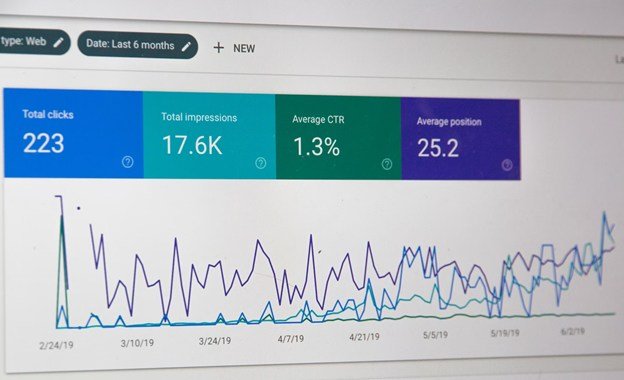Link building, a cornerstone of search engine optimization (SEO), demands a bespoke approach for each industry. This guide explores how to adapt link-building strategies to various industry landscapes, ensuring your efforts yield the best results.
The primary purpose of this article is to guide how to adapt link-building strategies for different industries, acknowledging that a one-size-fits-all approach could be more effective. The article aims to help businesses tailor their link-building efforts to their specific industry landscape, ensuring better results and a more efficient use of resources.
People should read this article to:
- Understand the importance of recognizing the unique characteristics of their industry and how this impacts an effective link-building strategy.
- Learn how to create content that resonates with their target audience and aligns with the norms and preferences of their industry.
- Gain insights into building relationships and networking within their industry, leveraging platforms and opportunities specific to their sector.
- Obtain practical tips and techniques for implementing industry-specific link-building strategies effectively.
- Discover ways to measure their link-building efforts’ success and return on investment (ROI) based on industry-relevant metrics.
Understanding Industry-Specific Dynamics

Recognizing the unique characteristics of your industry is crucial in shaping an effective link-building strategy. This involves a deep dive into the industry’s audience, the nature of the content that resonates, and the platforms where this audience is most active. Analyzing other players in the field with Linkchecker.Pro can help get a better understanding.
For instance, the healthcare sector demands accuracy and authority. Securing links from esteemed medical journals or health-focused news sites is more impactful than generic link-building platforms. In contrast, for a fast-paced industry like technology, links from cutting-edge tech blogs, forums, and news sites provide SEO value and place your content in front of a relevant, engaged audience.
On the other hand, industries like real estate benefit greatly from local SEO strategies. In this case, securing links from local real estate directories, regional news websites, and community forums can significantly boost visibility and credibility.
Content May Be King, but Context Is Queen
Content is undoubtedly critical in SEO, but even the best content can only fall flat with the proper context. It’s not just about creating high-quality content; it’s about ensuring that content speaks directly to the interests and needs of your target audience.
A practical approach is to develop buyer personas for your industry. For example, if you’re in the fashion industry, your primary persona might be a young, trend-conscious individual. Your content should be tailored to this demographic, focusing on the latest trends, style tips, and fashion news. This approach makes your content more engaging and more likely to be shared and linked to by industry-relevant sites.
Furthermore, understanding the types of content that perform well in your industry is critical. In some sectors, long-form, in-depth articles are valued, while infographics, videos, or short, snappy blog posts may be more effective in others.
For example, law businesses will mainly create long-form informative articles – here, you can find more link-building techniques for law websites. Matching the content format to the audience’s preferences and the industry norm is pivotal in creating link-worthy material.
Building Relationships and Networking

Effective link-building is as much about building relationships as it is about creating content. Different industries offer different networking opportunities and platforms for building these relationships.
In more formal sectors, such as law or finance, networking might involve contributing to industry journals, participating in webinars, or attending conferences. These activities establish your authority and provide opportunities to earn high-quality links from industry-specific sites.
In more creative or consumer-focused industries, like fashion or travel, leveraging relationships with influencers, bloggers, and social media personalities can be more beneficial. Collaborating on content, sponsoring posts, or engaging in social media conversations can lead to natural, high-quality links from their platforms to yours.
Also, consider using professional networks. Platforms like LinkedIn are invaluable for connecting with industry leaders and peers. Engaging with their content, sharing your insights, and collaborating on articles or reports can lead to valuable link opportunities.
Practical Tips for Effective Link Building
To make your link-building strategy more practical and impactful, consider the following tips:
- Research Competitors: Analyze where your competitors are getting their links from. This can offer insights into potential link-building opportunities within your industry.
- Leverage Industry Events: Participating in or even sponsoring industry events can considerably earn links from event websites, press releases, and related coverage.
- Create Shareable Resources: Develop resources such as whitepapers, e-books, or industry reports that provide value and are likely to be shared and linked to.
- Guest Blogging: Write guest posts for reputable websites in your industry. This not only helps in acquiring backlinks but also in establishing your authority.
- Monitor Your Backlink Profile: Regularly monitor your backlink profile to ensure that you gain links from reputable sources and identify any potentially harmful links.
Measuring Success and ROI
Establishing clear metrics for measuring the success of link-building efforts is essential. While an e-commerce website might focus on increasing sales, a service-based business might measure success by the quality of leads generated. Tailoring these metrics to specific industry goals is critical.
Final Thoughts
In conclusion, adapting link-building strategies to suit different industries requires a blend of understanding industry dynamics, creating contextually relevant content, and building strategic relationships. Businesses can craft effective, industry-specific link-building strategies that drive results by applying these principles and keeping abreast of industry trends and SEO best practices.
